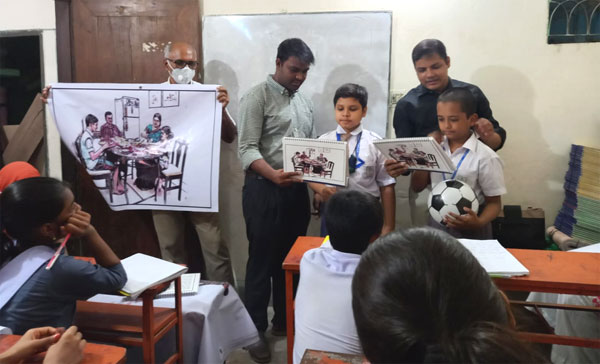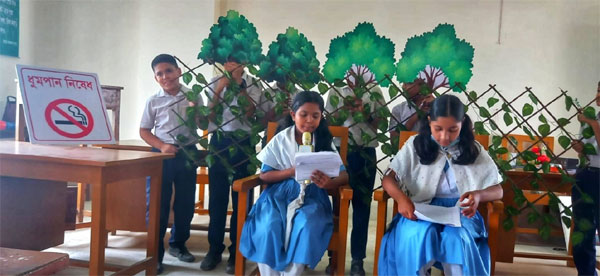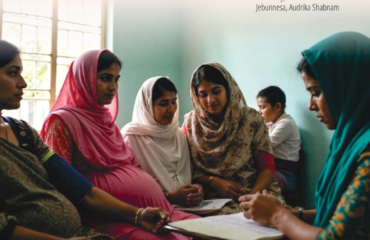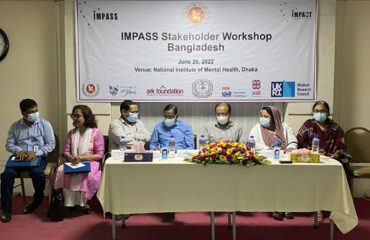Children Learning About Second-hand Smoke (CLASS-III) is an ongoing multinational cRCT project of ARK Foundation in collaboration with the University of York, United Kingdom. The project aims to assess the effectiveness and cost-effectiveness of school-based Smoke-Free Intervention (SFI) in reducing children’s exposure to second-hand smoking (SHS) and the frequency and severity of respiratory symptoms. The project was initiated in 2010 to research the effects of SHS on children. In the second phase, the project discovered that 95% of children had nicotine in their body. Currently, the project is in its third phase and conducted in a larger radius to provide a better understanding of the scenario, which explains the project name (CLASS-III).

Intervention of CLASS-III in the schools of Dhaka
For the study, a two-arm cluster randomised controlled-trial is being conducted in 34 randomly selected schools in Dhaka, where 1383 children are recruited. Half of the schools are assigned to the intervention arm, receiving SFI, while the other half is continuing with usual education. The primary outcome of the study is a change in salivary cotinine, a highly sensitive and specific biomarker of SHS exposure, which is again measured at month three. Secondary outcomes included frequency and severity of respiratory symptoms, healthcare contacts, school absenteeism, smoking uptake, and quality of life which is also checked in the follow up activity of month 3, month 6 and month 12 including baseline. Additionally, an economic and process evaluation is also being conducted.

Intervention of CLASS-III in the schools of Dhaka
Key Publications:
- Huque R, Siddiqi K, Khokhar M, Jackson C, Kanaan M, Hewitt C, Kellar I, Welch C, Parrott
S, Mishu MP, Sheikh A. Children Learning About Secondhand Smoke (CLASS III): a
protocol for a cluster randomised controlled trial of a school-based smoke-free intervention in
Bangladesh and Pakistan. BMJ open. 2023 Jul 1;13(7):e068620.
Funding Agency: Medical Research Council (MRC)
Sponsor: University of York, UK
Duration: December, 2019 – July, 2024




